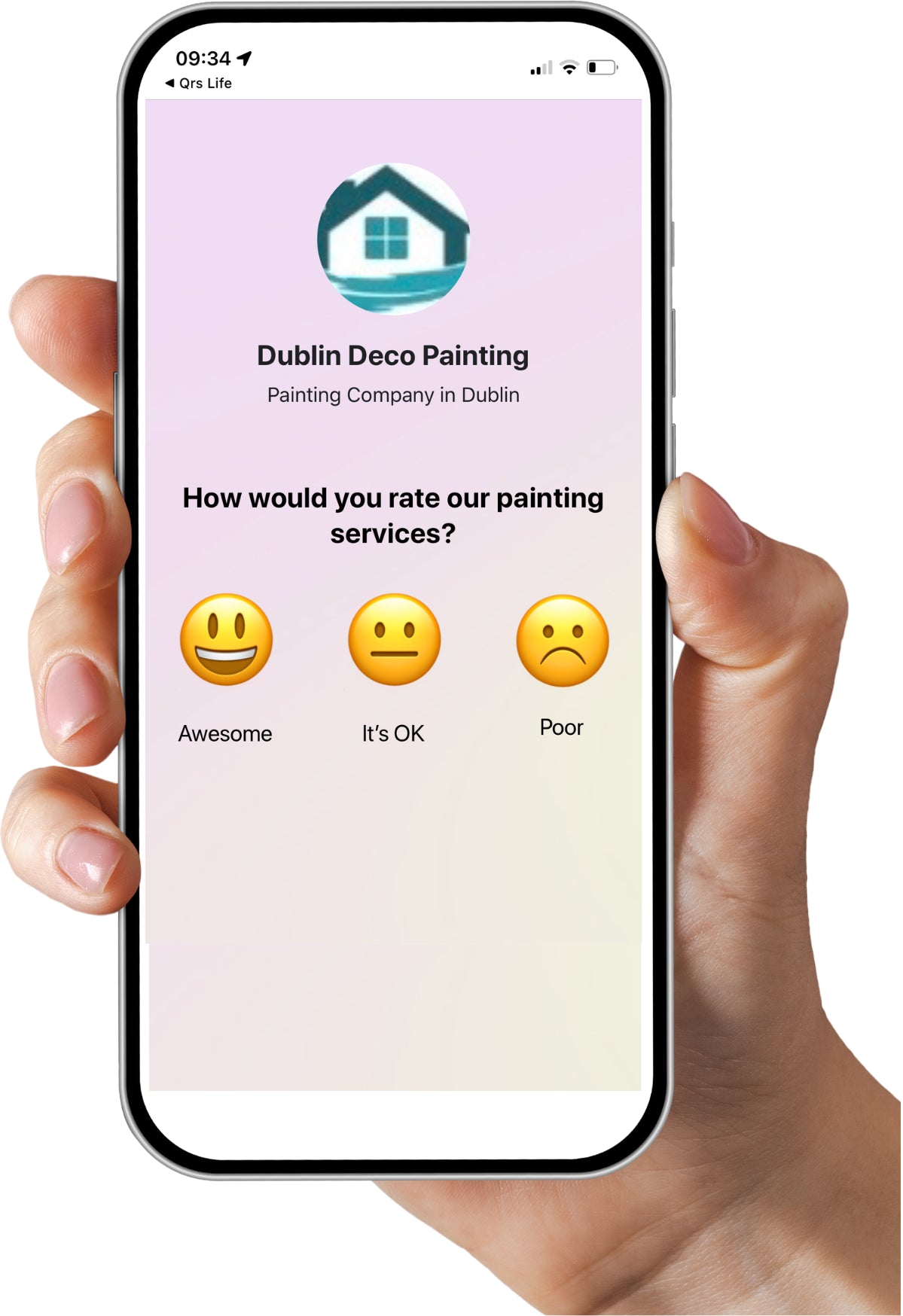In today's digital age, online reviews have become an integral part of our decision-making process. Whether we're looking for a new restaurant to try or researching a potential product to purchase, online reviews hold immense power in shaping our choices.
But what happens when those reviews turn sour? How do bad reviews affect your business? How much weight do bad reviews really carry when it comes to your business's reputation?
In this blog post, we'll explore the impact of negative feedback and discuss strategies for managing and building a positive online presence. So buckle up as we delve into the world of customer sentiment and discover just how crucial it is for businesses to navigate the realm of online reviews with care!
The Impact of Review Sites on Your Business
Do bad reviews hurt businesses? Review sites have become influential platforms that can make or break a business. With the click of a button, potential customers can access a wealth of information about your products or services from other people's experiences.
This ease of access has transformed online reviews into powerful tools for consumers to make informed decisions.
Positive reviews can serve as valuable endorsements, boosting your credibility and attracting new customers. On the other hand, negative reviews have the potential to tarnish your reputation and drive prospective clients away.
With review sites like Yelp, TripAdvisor, and Google Maps dominating search engine results pages (SERPs), it has never been more crucial for businesses to actively manage their online presence and address customer feedback promptly.
By understanding the impact that review sites have on your business, you can take proactive steps toward maintaining a positive reputation in an increasingly connected world.
How much can a bad review hurt your business?
So, how bad are bad reviews for your business?
Bad business reviews can have a significant impact on your business. In today's digital age, consumers heavily rely on online reviews to make purchasing decisions. A single bad review can deter potential customers from choosing your products or services over competitors.
Negative reviews can harm your reputation and credibility. When potential customers come across a negative review, they may question the quality of your offerings and whether they can trust your business. This loss of trust can result in a decrease in sales and ultimately affect your bottom line.
Additionally, bad reviews can also lead to a decrease in website traffic and search engine rankings. Search engines prioritize businesses with positive reviews, so if you have several negative ones, it could push your website lower in search results. This means fewer people will discover your business when searching for relevant keywords or phrases.
The impact of bad reviews should not be underestimated. It is crucial to actively manage and address negative feedback to mitigate its effects on both the reputation and success of your business.
The Problem with Negative Reviews
Negative reviews can be a serious problem for businesses. They have the power to damage your reputation and turn potential customers away. One of the biggest issues with negative reviews is their impact on consumer trust. When people see a low rating or negative feedback, they are less likely to trust your business and may choose to take their business elsewhere.
Another problem with negative reviews is that they can spread quickly in today's digital age. With social media platforms and review websites, unhappy customers have an easy outlet to share their experiences and opinions about your business. These negative reviews can reach a wide audience, potentially reaching thousands of potential customers who may form a negative impression without ever giving you a chance.
It's important for businesses to address these problems head-on and actively manage their online reputation. Ignoring or dismissing negative reviews will only make matters worse. By taking proactive steps to respond to and resolve customer complaints, you can mitigate the impact of bad reviews on your business's reputation.
The Impact of Negative Reviews
When it comes to negative reviews, the impact on your business can be significant. In today's digital age, where online reviews hold immense power, a single negative review can tarnish your reputation and deter potential customers from choosing your products or services. Negative reviews have the ability to spread quickly and influence consumer decisions.
The impact of negative reviews is not limited to just losing potential customers. They can also lead to a decrease in sales, as people may choose competitors over you based on these negative experiences shared by others. Additionally, negative reviews can damage your credibility and trustworthiness in the eyes of consumers. It takes time and effort to build a positive reputation, but just one bad review has the potential to undo all that hard work.
To mitigate the impact of negative reviews, it is essential for businesses to actively manage their online reputation. This involves monitoring review sites regularly and addressing any issues promptly and professionally. By responding thoughtfully and constructively to negative feedback, you demonstrate that you value customer satisfaction and are committed to resolving problems.
Managing online reviews effectively requires staying engaged with customers' opinions about your business. Encourage satisfied customers to leave positive reviews while proactively seeking feedback from unhappy customers so that you have an opportunity for resolution before they turn into public complaints.
In conclusion:
Negative reviews have a significant impact on businesses today due to their reach and influence over consumer decision-making processes. It is crucial for businesses to actively manage their online reputation by responding positively to negative feedback and encouraging more positive customer ratings. By doing so, businesses can minimize the harmful effects of bad reviews while building a strong foundation for a positive online presence.
How Do Negative Reviews Impact Business?
Negative reviews can have a significant impact on a business's reputation and bottom line. When potential customers come across negative reviews, they may think twice about doing business with that company. Negative reviews can erode trust and credibility, making it harder to attract new customers.
Furthermore, negative reviews can also affect search engine rankings. Search engines take into account the overall sentiment of online reviews when determining the relevance and authority of a website. This means that if your business has numerous negative reviews, it may rank lower in search results, reducing its visibility to potential customers. It is crucial for businesses to understand how negative reviews impact their reputation and take steps to effectively manage them.
Responding to Negative Reviews
One of the most important things you can do when faced with a negative review is to respond promptly and professionally. Ignoring or dismissing negative feedback can make your business appear uncaring and unresponsive. Instead, take the time to address the concerns raised in the review.
Start by acknowledging the customer's experience and expressing empathy for their dissatisfaction. Apologize for any inconvenience caused and assure them that you take their feedback seriously. Then, offer a solution or steps towards resolving their issue. By showing that you are actively working towards a resolution, you demonstrate your commitment to customer satisfaction and may even be able to turn a negative experience into a positive one.
Remember, though, not all negative reviews warrant an immediate response. Sometimes it's best to step back and assess whether the complaint is valid or if it's an isolated incident. If multiple customers have raised similar concerns, it might indicate areas where improvements are needed within your business operations.
Responding thoughtfully and constructively to negative reviews shows that you value your customer's opinions and are willing to go above and beyond to address their concerns. This proactive approach can help mitigate any potential damage caused by bad reviews while also building trust among existing and potential customers alike.
How to Respond Positively to Negative Reviews
Negative reviews can be a tough pill to swallow, but how you respond to them can make all the difference in shaping your online reputation. When faced with negative feedback, it's important to maintain professionalism and respond positively.
First and foremost, take the time to fully understand the customer's concerns before crafting your response. This shows that you value their opinion and are committed to resolving any issues. Once you have a clear understanding of their complaint, acknowledge their experience and apologize for any inconvenience they may have encountered. Offering empathy goes a long way in showing that you genuinely care about customer satisfaction.
In your response, address each specific issue raised by the customer and provide an explanation or solution where possible. Be transparent about any steps being taken to rectify the situation or prevent similar incidents from occurring in the future. By showcasing your commitment to improvement, potential customers will see that you are responsive and dedicated to providing excellent service despite occasional setbacks. Remember: responding positively is not only crucial for retaining disgruntled customers but also for demonstrating your professionalism and integrity to prospective clients who may come across these reviews later on
How Do I Respond to Negative Reviews?
Negative reviews can be disheartening, but it's important to respond to them in a professional and constructive manner. When faced with a negative review, take a deep breath and remember that your response will be seen by potential customers as well.
Thank the reviewer for their feedback and acknowledge their concerns. It's essential to show empathy and let them know that you value their opinion. Avoid getting defensive or making excuses – instead, focus on finding a solution. Offer to address the issue privately or provide alternative options if necessary.
Keep your response concise and polite. Remember that other people will be reading your reply, so maintain professionalism throughout. Address specific points raised in the review without being argumentative or confrontational.
By responding positively to negative reviews, you demonstrate your commitment to customer satisfaction and showcase excellent customer service skills. This can help mitigate any potential damage caused by the negative review while also showing others that you care about resolving issues promptly and effectively.
Managing Online Reviews
In today's digital age, online reviews have a significant impact on a business's reputation. Managing these reviews effectively is crucial for maintaining a positive image and attracting new customers. So, how can you handle online reviews in the best way possible?
It's essential to actively monitor review sites and social media platforms where customers may leave feedback. By regularly checking these channels, you can address any negative comments promptly and show that you genuinely care about customer satisfaction.
Responding to both positive and negative reviews is vital. When someone leaves a positive review, express your gratitude and let them know their feedback is valued. For negative reviews, take the time to understand the issue at hand before crafting a thoughtful response that addresses specific concerns or offers assistance.
By actively managing your online reviews in this manner, you demonstrate professionalism and dedication to customer service. This proactive approach not only helps mitigate potential damage from negative feedback but also showcases your commitment to improving the overall customer experience.
How Do I Manage Online Reviews?
Managing online reviews is crucial for maintaining a positive reputation for your business. Make sure you are actively monitoring review sites and social media platforms where customers may leave feedback. Set up alerts or notifications so that you can promptly respond to both positive and negative reviews.
When it comes to negative reviews, it's important not to ignore them. Responding professionally and empathetically shows that you value customer feedback and are committed to resolving any issues. Address the reviewer by name, acknowledge their concerns, and offer a solution or apology if necessary. Remember to keep your response concise, polite, and focused on finding a resolution.
In addition to responding directly to reviews, consider implementing strategies like requesting feedback from satisfied customers and encouraging them to share their experience online. This can help counterbalance any negative reviews with more positive ones. Regularly monitor your online reputation through tools or software that track mentions of your brand across various platforms. By staying proactive in managing online reviews, you have the opportunity to shape public perception of your business in a positive way.
Make Online Reviews a Priority
Managing and responding to online reviews is essential for businesses today. However, it's not enough to simply react to negative feedback - you also need to actively seek positive reviews. Making online reviews a priority can greatly impact your reputation and ultimately, your bottom line.
Positive reviews serve as social proof of the quality of your products or services. They build trust with potential customers and influence their purchasing decisions. By consistently encouraging satisfied customers to leave reviews on platforms like Google, Yelp, or Facebook, you can bolster your online reputation and attract more business.
On the other hand, neglecting online reviews can have detrimental effects. Without actively managing them, negative experiences may go unaddressed and tarnish your brand image. Additionally, potential customers may be less likely to choose your business if they see a lack of recent positive feedback.
To make online reviews a priority:
- Regularly monitor review sites for new feedback.
- Respond promptly and professionally to both positive and negative comments.
-
Encourage satisfied customers to leave reviews by providing incentives or sending follow-up emails after their purchase experience.
By making online reviews a top priority in your overall marketing strategy, you're taking proactive steps toward building a strong online reputation that will help drive success for your business in the long run!
Automating Positive Reviews
Managing online reviews can be time-consuming and overwhelming, especially if you have a large number of customers. However, there are ways to automate the process and encourage more positive reviews for your business.
One strategy is to use review management software that can automatically reach out to customers after their purchase or visit and request feedback. These automated messages can prompt satisfied customers to leave a positive review on popular platforms like Google My Business, Yelp, or TripAdvisor.
Additionally, you can set up email campaigns or text message reminders asking happy customers to share their experiences online. By automating this process, you increase the likelihood of receiving positive reviews without having to manually follow up with each customer individually.
Automating positive reviews not only saves time but also helps build a stronger online reputation for your business. Positive reviews act as social proof and influence potential customers' decisions when choosing between different businesses in your industry. So take advantage of the automation tools available and make generating positive reviews part of your overall marketing strategy.
Conclusion
Bad reviews do carry weight when it comes to your business's reputation; however, how you handle them determines whether they become detrimental or an opportunity for growth. By managing online feedback effectively through timely responses and prioritizing customer satisfaction above all else, you can turn negatives into positives while building trust among potential customers.
Remember: Your online reputation matters – invest time into monitoring it regularly!












